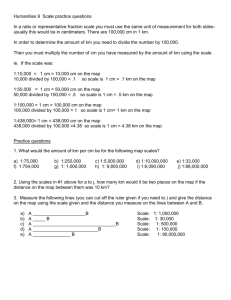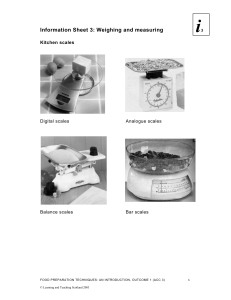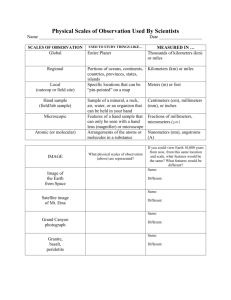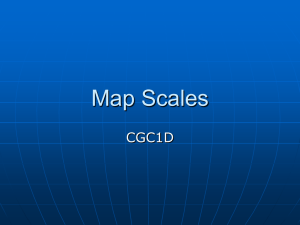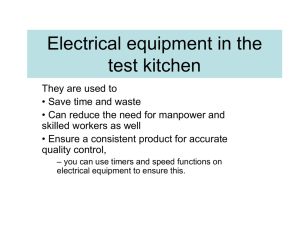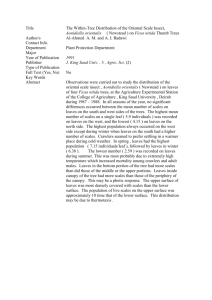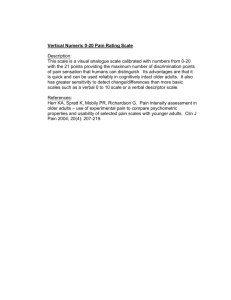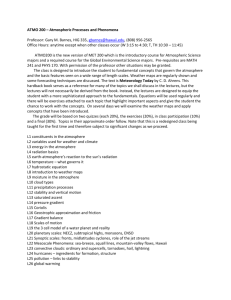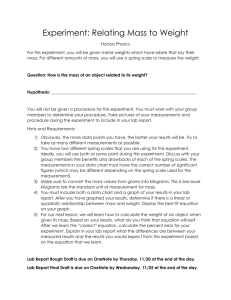Food Preparation Techniques Outcome 1 p1-5
advertisement
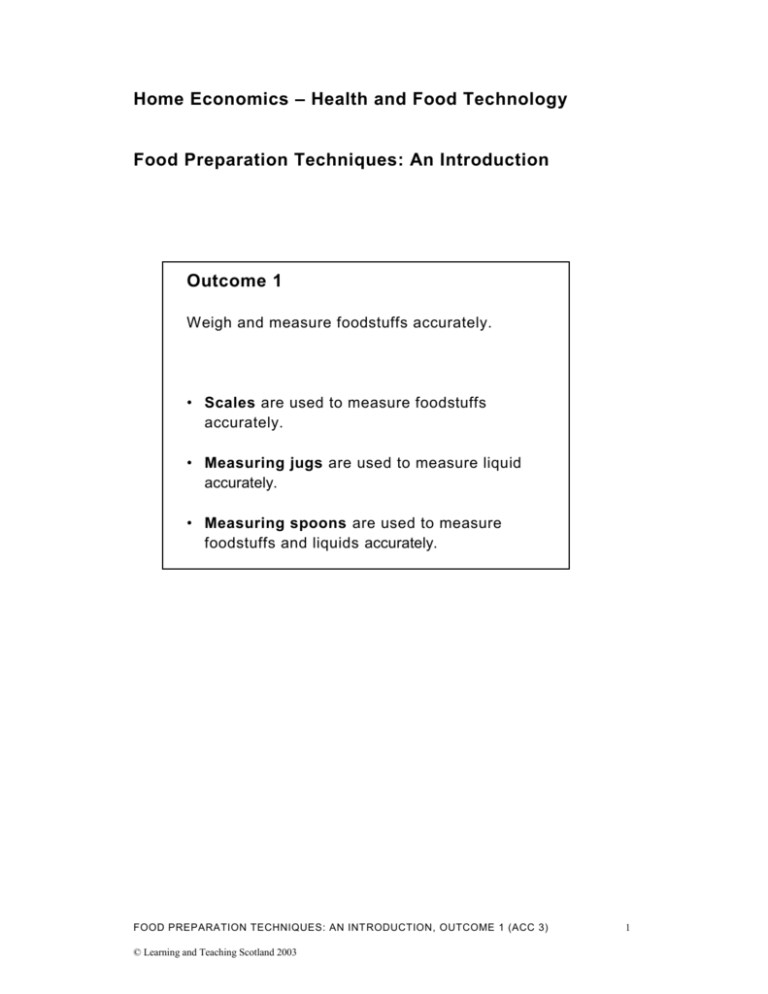
Home Economics – Health and Food Technology Food Preparation Techniques: An Introduction Outcome 1 Weigh and measure foodstuffs accurately. • Scales are used to measure foodstuffs accurately. • Measuring jugs are used to measure liquid accurately. • Measuring spoons are used to measure foodstuffs and liquids accurately. FOOD PREPARATION TECHNIQUES: AN INT RODUCTION, OUTCOME 1 (ACC 3) © Learning and Teaching Scotland 2003 1 Hygiene when working with food Personal hygiene • • • • • • • • Wash hands before preparing foods. Wash hands after using the toilet. Wash hands after handling raw meat. Wash hands after touching rubbish bins. Wash hands after touching pets. Do not touch the mouth, nose or hair while preparing food. Do not cough or sneeze over food. Cover sores, cuts, etc. on the hands. Kitchen hygiene • • • • • Keep Keep Keep Keep Keep work surfaces clean. cloths and tea towels clean. rubbish bins covered. all equipment clean. flies out of the kitchen. Always • Prevent contact between cooked and uncooked food. • Clean surfaces and equipment after using uncooked meat. FOOD PREPARATION TECHNIQUES: AN INT RODUCTION, OUTCOME 1 (ACC 3) © Learning and Teaching Scotland 2003 2 Worksheet 1: Weighing and measuring List 3 pieces of equipment that you can use to weigh and measure food. Give an example of one ingredient which could be measured by each one. Measuring/weighing equipment Ingredient to be measured List 3 pieces of equipment you can use to weigh/measure liquids. Give an example of one ingredient, which could be measured by each one. Measuring/weighing equipment Liquid to be measured FOOD PREPARATION TECHNIQUES: AN INT RODUCTION, OUTCOME 1 (ACC 3) © Learning and Teaching Scotland 2003 3 i Information Sheet 1: Weighing and measuring food Clock Analogue scales Measuring jug Electric timer Digital scales Measuring cups Balance scales Digital timer Egg timer Measuring spoons Bar scales FOOD PREPARATION TECHNIQUES: AN INT RODUCTION, OUTCOME 1 (ACC 3) © Learning and Teaching Scotland 2003 1 4 i Information Sheet 2: Definition 2 Clock Instrument for measuring time, in which the hours, minutes and seconds are indicated by means of pointers on a dial face. Analogue scales Instrument for measuring weight, in which the kilograms and grams are indicated by means of a pointer on a dial face. Measuring jug A utensil for measuring liquids in which the litres and millilitres are indicated by a scale. Electric timer An electric instrument, marked in minutes on a dial, which can be set to indicate when a given amount of time has passed. Measuring cups A handy measure for liquid or dry goods graded to set amounts. Digital scales An electric instrument which indicates the weight by means of numbers, usually in kilograms and grams. Balance scales A mechanical instrument which levels off when the food measured is balanced with the chosen metal weight(s). Egg timer A small sand glass for timing the boiling of eggs. Measuring spoons A handy measure for liquid or dry goods graded to set amounts. Digital timer An electric instrument, marked in minutes and seconds on a number di splay, which can be set to indicate when a given amount of time has passed. Analogue scales Instrument for measuring weight, in which the kilograms and grams are indicated by means of a pointer on a moveable bar. FOOD PREPARATION TECHNIQUES: AN INT RODUCTION, OUTCOME 1 (ACC 3) © Learning and Teaching Scotland 2003 5
